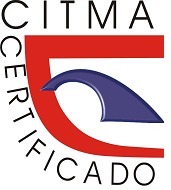Management of lessons learned in UCI projects: strengths and opportunities for improvement
DOI:
https://doi.org/10.5281/zenodo.5810578Keywords:
strengths, management of lessons learned, process improvement, opportunities, Informatics Sciences UniversityAbstract
The management of lessons learned includes their identification, validation, utilization, sharing, storage and control. The University of Informatics Sciences has produced products and services for different areas of knowledge. Each project has a file to store the artifacts generated, including a record of lessons learned. During the research, the Fundamentals Guide for Project Management, the PRojects IN Controlled Environments standard, the International Organization for Standardization standard 21500, the Capability Maturity Model Integration, the Cuban Model of Informatics Applications Development and the results of a survey applied to 50 members of the University's projects were analyzed. Achieving the objective of identifying strengths and opportunities for improvement to manage the lessons learned from the Institution's development projects. The results of this work can be consulted to reform the activities related to the lessons learned management process in the organization's development projects, in order to take advantage of the experience gained.
References
Alqadri, Y., Budiardjo, E. K., Ferdinansyah, A., & Rokhman, M. F. (2020). The CMMI-Dev Implementation Factors for Software Quality Improvement: A Case of XYZ Corporation. Proceedings of the 2020 2nd Asia Pacific Information Technology Conference, 34–40. New York, NY, USA: Association for Computing Machinery. https://doi.org/10.1145/3379310.3379327
Altahtooh, U. (2020). Why Take PMP Rather than Prince2 in Project Management in Saudi Arabia? European Journal of Business and Management Research, 5(3). https://doi.org/10.24018/ejbmr.2020.5.3.335
Armas Vega, S. D. (2019). Ejecución de proyectos de construcción y su mejoramiento conforme a la Norma NTE INEN-ISO 21500. Caso: Armas Vega Asociados, asesoría y servicios. Retrieved from http://repositorio.puce.edu.ec:80/xmlui/handle/22000/17786
AXELOS. (2017). Managing Successful Projects with Prince2 (Sixth).
Ayyagari, M. R., & Atoum, I. (2019). CMMI-DEV Implementation Simplified. International Journal of Advanced Computer Science and Applications, 10(4). https://doi.org/10.14569/IJACSA.2019.0100455
Barghi, B., & Shadrokh sikari, S. (2020). Qualitative and quantitative project risk assessment using a hybrid PMBOK model developed under uncertainty conditions. Heliyon, 6(1), e03097. https://doi.org/10.1016/j.heliyon.2019.e03097
Cabana, A. (2019). Gestión de proyectos, norma gtc-iso 21500: 2013 y PMBOK: una breve revisión de la literatura. Ingeniare, (27), 41–53.
Čabarkapa, J. (2019). Analysis and comparison of ISO 21500—Guidance on project management and PMBOK 6th Guide. Proceedings of the 5th IPMA SENET Project Management Conference (SENET 2019). Presented at the Proceedings of the 5th IPMA SENET Project Management Conference (SENET 2019), Belgrade, Serbia. https://doi.org/10.2991/senet-19.2019.44
Carrizo, D., Alfaro, A., Carrizo, D., & Alfaro, A. (2018). Método de aseguramiento de la calidad en una metodología de desarrollo de software: Un enfoque práctico. Ingeniare. Revista Chilena de Ingeniería, 26(1), 114–129. https://doi.org/10.4067/S0718-33052018000100114
Chavarriaga, M., & Lya, M. (2016). Lecciones aprendidas Proyecto Sistema de Alertas Tempranas de la ciudad de Medellín y el Valle de Aburrá—SIATA. Retrieved from http://repository.eafit.edu.co/handle/10784/9181
Clavijo Hernández, J. S. (2020). PMBOK, negocios y optimización de proyectos. Retrieved from http://repository.unimilitar.edu.co/handle/10654/38115
Delgado, J. S. V., Corzo, N. G., González, F. E. C., Márquez, J. A. C., & Arenas, C. E. V. (2020). Guía para la planeación e implementación de un sistema de levantamiento artificial basado en los lineamientos PRINCE2 para un campo petrolero en Colombia. Fuentes: El reventón energético, 18(2), 69–87.
Díaz, D., & Martínez, N. S. (2021). Enfoque ontológico para el análisis de estándares de calidad del proceso de software. Revista Cubana de Ciencias Informáticas, 15(3). Retrieved from https://rcci.uci.cu/?journal=rcci&page=article&op=view&path[]=2116
Esteki, M., Gandomani, T. J., & Farsani, H. K. (2020). A risk management framework for distributed scrum using PRINCE2 methodology. Bulletin of Electrical Engineering and Informatics, 9(3), 1299–1310. https://doi.org/10.11591/eei.v9i3.1905
Figueredo, L. (2021). Process of software testing for a model of quality in Cuba. 2219-6714. Retrieved from https://ridda2.utp.ac.pa/handle/123456789/13112
García Ruiz-Espiga, A. (2018). Metodología específica aplicando la norma internacional ISO 21500 en la gestión de licencias del Ayuntamiento de Madrid, para la optimización del proceso edificatorio. (Phd, E.T.S. Arquitectura (UPM)). E.T.S. Arquitectura (UPM). (east=-3.7035825; north=40.4167047; name=Madrid, Madrid, Comunidad de Madrid, España). Retrieved from https://oa.upm.es/54776/
Islam, S., & Evans, N. (2020). Key Success Factors of PRINCE2 Project Management Method in Software Development Project: KSF of PRINCE2 in SDLC. International Journal of Engineering Materials and Manufacture, 5(3), 76–84. https://doi.org/10.26776/ijemm.05.03.2020.02
ISO 21500. (2012). INTERNATIONAL STANDARD ISO 21500 (First). Switzerland.
Jesús del Angel Duque Campoverde, E., & Dante Godofredo Supo Rojas, M. (2021). MEJORA DEL DESEMPEÑO DE UNA EMPRESA CONTRATISTA Y DE SERVICIOS GENERALES APLICANDO LA METODOLOGÍA DE LA GUÍA PMBOK EN LA GESTIÓN DE PROYECTOS. INGENIERÍA: Ciencia, Tecnología e Innovación, 8(1). https://doi.org/10.26495/icti.v8i1.1538
Kononenko, I., Stepanova, O., Bukrieieva, K., Kononenko, O., & Kryvinska, N. (2020). Business Game for PMBoK Standard Training of Project Managers. 13.
Lerander, M., & Stenermark, G. (2018). Knowledge management: Improvement of knowledge feedback routines. Retrieved from http://urn.kb.se/resolve?urn=urn:nbn:se:uu:diva-355338
Luqman, A. (2006). Comparison of Configuration Management Activities Between Prince 2 amp; CMMI 1.1. 2006 International Conference on Emerging Technologies, 742–745. https://doi.org/10.1109/ICET.2006.335917
Machado, E. M. M., Minan, P., & de Oliveira, S. B. (2021). Proposta para a implantação do CMMI-DEV v2.0 ML3 em empresas de pequeno e médio porte de desenvolvimento de software—ProQuest Machado, Elaine M Margal; Mexas, Minan Picinini; de Oliveira, Saulo Barbará. Revista Ibérica de Sistemas e Tecnologias de Informação, 83–97.
Mejia, J., & Muñoz, M. (2017). Tendencias en Tecnologías de Información y Comunicación. RISTI - Revista Ibérica de Sistemas e Tecnologias de Informação, (21), ix–xii. https://doi.org/10.17013/risti.21.ix-xii
Miranda-Castillo, A. D., & Hermoso-Orzáez, M. J. (2020). Adaptación de los procedimientos de la Norma UNE-ISO 21500 a la normativa de contratos del sector público. Retrieved from http://dspace.aeipro.com/xmlui/handle/123456789/2419
Morett, Á. B. (2020). Aproximación al funcionamiento de las redes de conocimiento desde un enfoque comunicativo: Estudio de casos múltiples en andalucía sobre redes en el marco de la cooperación descentralizada para el desarrollo humano local (Http://purl.org/dc/dcmitype/Text, Universidad de Málaga; p. 1). Universidad de Málaga. Retrieved from https://dialnet.unirioja.es/servlet/tesis?codigo=286958
Nagyová, A., Pačaiová, H., Markulik, Š., Turisová, R., Kozel, R., & Džugan, J. (2021). Design of a Model for Risk Reduction in Project Management in Small and Medium-Sized Enterprises. Symmetry, 13(5), 763. https://doi.org/10.3390/sym13050763
Ocola, Y. J. (2021). Implementación de modelo CMMI nivel 3 en servicio de desarrollo y mantenimiento de software, ejecutado por Canvia (Universidad Nacional de San Agustín de Arequipa). Universidad Nacional de San Agustín de Arequipa. Retrieved from http://repositorio.unsa.edu.pe/handle/20.500.12773/12749
Oré, S. B., & Feliu, T. S. (2017). Lessons Learned and Software Process Improvement. Proceedings of the 7th International Conference on Information Communication and Management, 12–17. New York, NY, USA: Association for Computing Machinery. https://doi.org/10.1145/3134383.3134413
Oro, L., Alvarado, Y., Felipe, J., & Ramírez Pérez, J. (2019). La gestión de reutilización de software en el Modelo de la Calidad para el Desarrollo de Aplicaciones Informáticas en Cuba.
Oro, L. T., Lazo Alvarado, Y., & Ramírez Pérez, J. F. (2019). Proceso de diseño del software para un modelo de la calidad en Cuba. 2219-6714. https://doi.org/10.33412/idt.v15.1.2103
Peláez, M. A. V., & Huerta, A. D. E. (2020). Aplicación de PMBOK® a la gestión de la docencia en la universidad. Revista Innova ITFIP, 7(1), 110–124.
Pérez Montalván, D., Tardío López, M. A., & Febles Estrada, A. (2015). Guía general para un Modelo Cubano de Desarrollo de Aplicaciones Informáticas. Retrieved from http://repositorio.uci.cu/jspui/handle/ident/8725
Pinto, D., Scalabrini, L., Santos de Oliveira, M., Urbano, G. C., & Tenório, N. (2017). VALIDATING KNOWLEDGE CREATION INDICATORS FOR THE SOFTWARE INDUSTRY: A FIELD RESEARCH THROUGH A STRUCTURED QUESTIONNAIRE. Retrieved November 22, 2018, from ResearchGate website: https://www.researchgate.net/publication/322577637_VALIDATING_KNOWLEDGE_CREATION_INDICATORS_FOR_THE_SOFTWARE_INDUSTRY_A_FIELD_RESEARCH_THROUGH_A_STRUCTURED_QUESTIONNAIRE
PMI. (2017). A Guide to the project management body of knowledge (PMBOK® Guide) (Sixth Edition).
Raha, L. N., Hossain, A. K. M. W., Faiyaz, T., Hasan, M., Nahar, N., & Rokonuzzaman, M. (2018). A Guide for Building the Knowledgebase for Software Entrepreneurs, Firms, and Professional Students. 2018 IEEE 16th International Conference on Software Engineering Research, Management and Applications (SERA), 165–171. https://doi.org/10.1109/SERA.2018.8477199
Reis Scatolino, A., & Darwich Camilo, R. (2019). Influence Of Agile Methods Application And Knowledge Management In Software Quality: A Multivariate Analysis - ProQuest. Retrieved May 7, 2021, from https://search.proquest.com/openview/6d800dff11234a8465666d56204043b5/1?pq-origsite=gscholar&cbl=1686335
Reyes Cifuentes, V. H. (2021). Mapeo entre las áreas de proceso de “Definición e ingeniería del producto” y “Aseguramiento del éxito del producto” del modelo CMMI-DEV ver. 1.3 y la familia de estándares ISO/IEC 330XX (Quito, 2021.). Quito, 2021. Retrieved from http://bibdigital.epn.edu.ec/handle/15000/21382
Ridho, M. A., Yaqin, M. A., Ibad, M. N., Alqoroni, S., & Fauzan, A. C. (2021). Implementasi Standar Nasional Pendidikan Menggunakan Projects in Controlled Environments (PRINCE2) pada Organisasi Sekolah. ILKOMNIKA: Journal of Computer Science and Applied Informatics, 3(1), 111–127. https://doi.org/10.28926/ilkomnika.v3i1.129
Ríos Cassana, O. E., & Cuzcano Quintin, S. A. (2020). Propuesta de una guía de planificación ge gestión de proyectos de desarrollo de software siguiendo los lineamientos del PMBOK y CMMI-DEV en una entidad pública (Universidad Tecnológica del Perú). Universidad Tecnológica del Perú. Retrieved from http://repositorio.utp.edu.pe/handle/20.500.12867/3401
Rodríguez, H. (2017). Análisis y diseño de un modelo con integración de una metodología ágil en el nivel 2 de CMMI (Maestría). Universidad Nacional de Colombia, Bogotá, Colombia.
Rustamova, S. (2021). Application of PMI PMBOK standard in the development of the Construction cost management projects plan. International Journal of Trends in Business Administration, 11(1). Retrieved from http://academicjournalonline.org/index.php/ijtba/article/view/184
Schultze, U., & Stabell, C. (2004). Knowing What You Don’t Know? Discourses and Contradictions in Knowledge Management Research. Journal of Management Studies, 41(4), 549–573. https://doi.org/10.1111/j.1467-6486.2004.00444.x
SEI. (2010). CMMI® para Desarrollo, Versión 1.3.
Smiari, P., Bibi, S., & Stamelos, I. (2018). Knowledge Acquisition During Software Development: Modeling with Anti-patterns. Synergies Between Knowledge Engineering and Software Engineering, 75–92. https://doi.org/10.1007/978-3-319-64161-4_4
Sobieraj, J., Metelski, D., & Nowak, P. (2021). PMBoK vs. PRINCE2 in the context of Polish construction projects: Structural Equation Modelling approach. Archives of Civil Engineering, Vol. 67(nr 2). https://doi.org/10.24425/ace.2021.137185
Tonchia, S. (2018). Industrial project management. Berlin, Heidelberg: Springer.
Valacherry, A. K., & Pakkeerappa, P. (2020). Knowledge Management in the Software Industry: Creating Value Through Knowledge Application. Journal of Creating Value, 6(2), 249–270. https://doi.org/10.1177/2394964320968981
Vila Grau, J. L., & Capuz Rizo, S. (2020). Análisis del impacto de la Agilidad sobre los modelos de gestión de proyectos PMBoK, PRINCE2 e IPMA. Retrieved from http://dspace.aeipro.com/xmlui/handle/123456789/2428
Wang, J.-J., Negin, S., & Wang, M. (2020). The influence of PRINCE2 standard on customer satisfaction in information technology outsourcing: An investigation of a mediated moderation model. Journal of Enterprise Information Management. https://doi.org/10.1108/JEIM-08-2019-0223
Winter, R., & Chaves, M. S. (2017). Innovation in the management of lessons learned in an IT project with the adoption of social media. International Journal of Innovation: IJI Journal, 5(2), 156–170.
Downloads
Published
How to Cite
Issue
Section
License
Copyright (c) 2021 Dianet Díaz Oduardo, Yasmary Prieto Carmona

This work is licensed under a Creative Commons Attribution-NonCommercial 4.0 International License.













